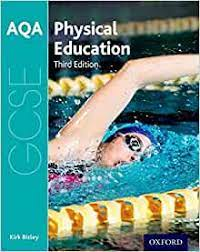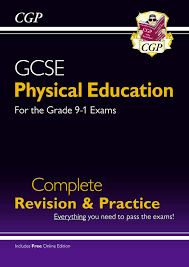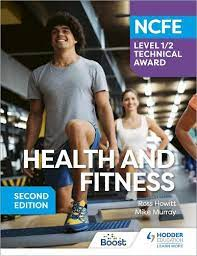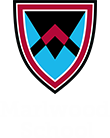PE
Vision:
At MARLWOOD, the PE curriculum provides an engaging environment, providing opportunities to develop motor skills in sport and physical activity alongside improving the soft skills of resilience, communication, team work and ambition; leading to improved concentration, confidence, social skills and self-esteem.
The PE Curriculum at Marlwood
Curriculum Map
KS3 Years 7-9
Our KS3 studies in PE aim to:
- develop technical skills through teamwork and collaboration
- empower learners with higher order skills through practising, performing and evaluating
- build confidence
- grow social and interpersonal skills
- create a platform for free speech and expression through creativity.
Useful Weblinks/additional reading
https://www.bbc.co.uk/bitesize/subjects/znyb4wx -BBC bitesize PE
https://www.gov.uk/government/publications/national-curriculum-in-england-physical-education-programmes-of-study - National Curriculum for PE
https://www.teachpe.com/ - Teach PE
https://www.rulesofsport.com/ - Rules of Sport
How to support your child
Discuss what they are doing in PE at the moment and explore techniques, tactics and key skills.
Encourage them to explore suggested websites.
Encourage them to join any sports clubs on offer at school and take part in fixtures and festivals.
Take children to watch any live matches at local or national level.
KS4 Curriculum Year 10-11
We offer two courses at KS4:
Physical Education GCSE
Exam Board: AQA
Exam weighting:
60% Theoretical Content (2 x 1hr 15 min written exams)
30% Practical Content
10% Coursework
Theoretical / Exam Content
- Paper 1 – The human body and movement in physical activity and sport (30% of GCSE)
- Paper 2 – Socio-cultural influences and well-being in physical activity and sport (30% of GCSE)
Practical Content
Practical performance in THREE different physical activities in the role of a player / performer (one in a team activity, one in an individual activity and the third in a team or individual activity). You will be assessed by your teacher in each of these in both skills in progressive drills and the sport in its full context. If we cannot assess your sport in school (e.g. Swimming, equestrian) you will need to provide video evidence to fulfil the criteria.
Coursework
There will be analysis and evaluation of performance needed in ONE sporting activity chosen from the specification. It does not have to be a sport that you are being practically assessed in.
Assessment:
- This is a “Linear” exam; there are 2 exams at the end of the course: both are 1 ¼ hour. Spelling, punctuation and grammar will also be assessed.
- You must be prepared to read and write extensively, as this is an academic subject which requires high literacy standards.
- There is also a practical element where you are assessed in three sports. It is desirable for candidates to have a good standard of practical performance in three sports.
- All students will sit the same exam: there are no ‘tiers’.
Content:
Paper 1: The Human Body and Movement in Physical Activity and Sport
- What's assessed: Applied anatomy and physiology, movement analysis, physical training and the use of data.
- How it's assessed: Written exam: 1 hour 15 minutes (78 marks, 30% of GCSE)
- Questions: A mixture of multiple choice/objective test questions, short answer questions and extended answer questions.
Paper 2: Socio-cultural influences and well-being in physical activity and sport
- What's assessed: Sports psychology, socio-cultural influences, health, fitness and well-being and the use of data.
- How it's assessed: Written exam: 1 hour 15 minutes (78 marks, 30% of GCSE)
- Questions: A mixture of multiple choice/objective test questions, short answer questions and extended answer questions.
Non-exam assessment: Practical performance in physical activity and sport
- What's assessed: Three sports from the AQA GCSE PE Sport list.
- How it's assessed: Assessed by teachers / Moderated by AQA (100 marks, 40% of GCSE)
- Questions: For each of their three activities, students will be assessed in skills in progressive drills (10 marks per activity) and in the full context (15 marks per activity).
- Students will be assessed on their analysis (15 marks) and evaluation (10 marks) of performance to bring about improvement in one activity.
Skills:
- GCSE PE offers students the opportunity to explore PE in a theoretical and practical form. The main skills needed for the course are: critical thinking, effective oral and written communication, accessing and analysing information, organisation, independence, curiosity and imagination.
- GCSE PE will equip you with the knowledge, understanding, skills and values to develop and maintain performance in physical activities and understand benefits to health, fitness and well-being
Enrichment:
Students will be expected to attend after school clubs both in school and out of school contexts focussing on improving the core skills in their three chosen sports for moderation.
What are the benefits of studying this course now and for the future?
- The benefits of taking this course are that you will learn to collaborate as part of a team, but also you will develop skills in personal organisation and social skills. We are looking for students who have shown enthusiasm and effort in KS3 and can further develop a passion for Physical Education.
- Physical Education is counted as an academic subject in terms of qualifications for the future. By the end of the course you will have learned many new skills. It can also lead to an A Level course or BTEC depending on your style of learning.
- Jobs that relate to this course are plentiful including: PE Teacher, Sports Coach, Physiotherapist, Sports Medicine, Physical Trainer, Sport and Fitness Nutritionist.
Possible Careers: Personal Trainer, Sports Therapist, Physiotherapist, Exercise Physiologist, Sport and Exercise Psychologist, Sports Coach, Professional Sports Person
Useful Links and resourcing
AQA GCSE PE textbooks and revision guides:


Support for students and parents
Marlwood GCSE PE Complete Revision webpage (can only be accessed by pupils)
GCSE POD AQA PESeneca Learning GCSE PE
Further information can be found on the AQA website here :
AQA | Physical Education | GCSE
Level 1/2 Technical Award in Health and Fitness (V.cert)
Exam Board: NCFE
Exam weighting:
40% Externally assessed written examination on Unit 1 - 1hr 30 mins
60% Internally assessed synoptic project (based on content of Unit 1 and 2)
This is a vocational qualification equivalent to GCSE grades 8.5 - 1
Theoretical content:
- Unit 1 - Introduction to body systems and principles of training in health and fitness
- Unit 2 - Preparing and planning for Health and Fitness
Practical content:
There is no statutory or assessed practical aspect to this course, however it can be expected that some of the theoretical content of the course will be taught through the application of practical lessons where appropriate
Coursework:
The Synoptic project will assess the learners ability to effectively draw together their knowledge, understanding and skills from across the whole of the course content. This will not be started until all of the theory aspects of the two units have been taught in full.
The synoptic project will be externally set by NCFE, internally graded by the centre and externally quality assured by NCFE.
The completion of the internal synoptic project is 21 hours supervised time.
Learners will have one opportunity to resubmit once.
Assessment:
- The external assessment will be in the form of a written exam which will assess the learner’s knowledge and understanding of content from Unit 1 only.
- Examinations windows are in March or November, and students may resit the exam once
- The synoptic assessment enables learners to show that they can transfer and apply their knowledge and skills learnt in Units 1 and 2 to show their understanding in the context of being able to prepare and plan for health and fitness.
Content:
Unit 1: Introduction to body systems and the principles of training in health and fitness
- What's assessed:
- Understand the structure and functions of the body systems and how they apply to health and fitness
- Understand the effects of health and fitness activities on the body
- Understand health and fitness and the components of fitness
- Understand the principles of training
- How it's assessed: Written exam: 1 hour 30 minutes (40% of final grade)
- Questions: A mixture of multiple choice, short answer and extended response questions
Unit 2: Preparing and Planning for Health and Fitness
- What's assessed:
- Understand the impact of lifestyle on health and fitness
- Understand how to test and develop components of fitness
- Understand how to apply health and fitness analysis and set goals
- Understand the structure of a health and fitness programme and how to prepare safely
- How it's assessed: The synoptic project will be externally set by NCFE, internally graded and externally quality assured. It will assess the learners ability to effectively draw together their knowledge and understanding and skills from what they have learnt from Units 1 and 2. The completion time for the internal project is 21 supervised time
Skills:
- The V.cert in Health and Fitness encourages students to use knowledge and practical tools to focus on supporting people with specific health and fitness goals
- This qualification has been designed to sit alongside the requirements of core GCSE subjects and is appropriate for learners who are motivated and challenged by learning through hands on experiences and through content which is concrete and and directly related to those experiences
- Communication skills, personal organisation and time management will be an advantage and further developed
Enrichment:
Students might find it useful to attend extra-curricular clubs in order to apply and put into practice the skills they have learnt in the classroom
What could this qualification lead to?
- Depending on the grade that is achieved at the end of the course, students could progress onto Level 2 and 3 qualifications and/or GCSE/ALevels
- Learners who achieve Level 1 might consider progression to Level 2 qualifications post-16 such as study at Level 2 in a range of technical routes that have been designed for progression to employment, apprenticeships and further study. For example
- ➢ Sport and Physical Activity
- ➢ Sports and Activity Leaders
- ➢ Exercise and Fitness Instruction
- ➢ Exercise and Fitness Instruction for Wellbeing
- ➢ Coaching Sport and Instructing Physical Activities
- ➢ Physical Activity and Exercise Science
Technical certificate qualification provide post-16 learners with the knowledge and skills tey need for skilled employment or for further technical study.
- Learners who achieve Level 2 might consider progression to Level 3 qualifications post -16 such as
Applied generals in
- ➢ Sports studies
- ➢ Sport and physical activity
- ➢ Sport and Exercise Science
Technical Levels in
- ➢ Sport and Physical Activity
- ➢ Personal Training
- ➢ Physical Activity and Exercise Science
A Level in PE and Sport. This will support progression to higher education
Useful Links and resourcing
NCFE VCERT PE textbook:

Support for students and parents
Further information can be found here for the Level 1/2 Technical Award in Health and Fitness (V.cert):

